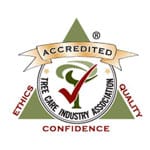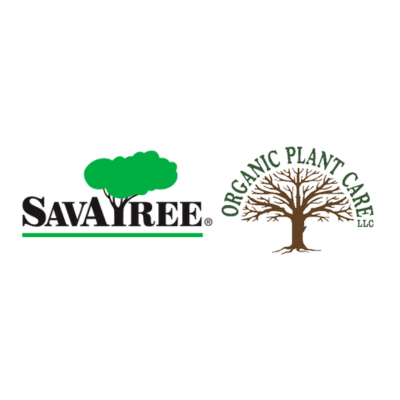Frequently Asked Questions
We know you may have questions about the work we do, what it's like to work with Organic Plant Care LLC, payment options, and more. Below are answers to the questions we're asked most often, but if you don't see your question here, just give us a call! You can always reach us at 908-309-6611 or by using our contact form.
Insurance, Licenses & Certifications
We cover a large part of central New Jersey, as well as some areas in and around Bucks County, Pennsylvania.
You can see our service area here.
Or, if you're not sure, give us a call at 908-309-6611 to see if we cover your specific neighborhood.
We have been accredited by the Tree Care Industry Association (TCIA) since December 2017.
TCIA Accredited companies are required to meet stringent criteria for professionalism, employee training, state and federal safety regulations, business ethics, and consumer satisfaction.
All TCIA Accredited companies have undergone a comprehensive on-site audit of professional and business practices, aimed at safeguarding consumers. We are also required to go through periodic recertification to ensure that all criteria are continuously met.
Organic Plant Care LLC is one of only a handful of Accredited companies in New Jersey, and just over 450 in the whole country.
You can learn more about TCIA Accrediation and what it means to you here >>
In 2011, New Jersey enacted a new law that governs the application of phosphorus and nitrogen fertilizer in the state of New Jersey. This law requires certification and training for commercial landscapers. All of our staff are either certified or trained as required by the 2011 New Jersey Fertilizer law.
New Jersey also requires all companies that offer "pest control services", including organic treatments for tree and lawn pests, to have a pesticide applicator business license. You can verify our business license here.
On April 17, 2017, New Jersey enacted a law that requires any tree care company for hire in New Jersey to:
- be registered with the New Jersey Board of Tree Experts,
- carry proper liability and workers’ compensation insurance, and
- employ a Licensed Tree Expert (LTE) and/or Licensed Tree Care Operator (LTCO).
Any company you hire to do tree work in New Jersey must comply with this law.
Check with the NJ Board of Tree Experts for an up-to-date directory of licensees and businesses that are in compliance with the law (you'll find Organic Plant Care LLC on that list).
Invoicing & Payments
We are not able to give you an estimate for tree removal (or any other tree work) over the phone. Each job is unique and the cost will depend on many different factors, including the tree's size, health, species, location, proximity to other trees, structures or power lines, ease of access, and more.
To provide you with an estimate for tree work, we will need to schedule a time to visit your property and inspect the tree and surrounding area.
You can give us a call at 908-309-6611 to set up that appointment, or use our online form to request an estimate.
We accept payment by check or credit card (Visa, Mastercard, or American Express).
We do not accept payment by cash.
No deposit is required before work begins. You will be sent an invoice for the total amount immediately after the work is done.
You will be sent an invoice for all completed work immediately after the work is done. You can choose to have the invoice sent to you by email or through the US Postal Service.
You can pay an invoice by:
- mailing a check to the address on the invoice
- clicking the payment link on the invoice to pay online
- calling our office at 908-309-6611 to pay by credit card over the phone
Payment is due within 10 days of the date on the invoice.
A service fee will be added to any invoice that is not paid within 30 days.
About Our Organic Lawn, Pest & Disease Applications
Our organic tree, shrub, and lawn applications do not harm the environment. These carbon-based materials do the job quickly and then break down rapidly, unlike synthetic chemicals that linger in the environment for months.
Most of the materials we use (such as horticultural oils, biological treatments, and insecticidal soaps) do not affect beneficial insects.
However, a few treatments (such as pyrethrin and spinosad) do affect all insects, including pollinators. These treatments are used sparingly, often as a last resort, and we carefully target the timing and specific plants that are treated so as to minimize the impact on beneficial insects. These are not treatments that are sprayed indiscriminately or when we know that pollinators or other beneficial insects will be particularly active.
There is no need to wait - it's safe to go outdoors as soon as the application is completed.
Your well and surrounding groundwater will not be affected by our organic treatments, including deep root fertilization.
Organic materials are tied up in the soil by bacteria that slowly break them down over the course of weeks to months. As a result, organic treatments don't leach into the groundwater or cause runoff problems.
Yes, our organic tick and mosquito treatments really are effective!
While no product - organic or synthetic - can kill every single tick on your property, our cedar-based treatment effectively kills ticks and mosquitoes and has a long-lasting repellent that keeps them away for 30 days or more.
The key to effective tick and mosquito control is to apply treatments where and when these pests are likely to be found. For example, there's no point spraying your lawn for ticks as they're highly unlikely to be found there (without protection, they quickly dry out and die).
Our knowledgable and experienced staff apply treatments where they'll be most effective - rock crevices, wood piles, shrub beds, groundcover, etc.
We also apply control treatments with a hose that runs directly from the truck (up to 300 feet). This means that we spray much more product and cover areas more thoroughly than would be possible with just the typical backpack mister other companies use.
Yes, our organic treatments are safe for children and pets. In fact, there's no need to wait for the area to "clear" after treatment - you're free to go outside at any time.
We are required to post a pesticide application sign after using any product that has an assigned EPA registration number, no matter how safe it is.
“EPA-registered” simply means that a product should do what the label says and should not pose an unreasonable hazard to your health. Nearly every product used in the landscape has an EPA registration number, even something as innocuous as horticultural oil.
The organic treatments we use are not "chemicals" - they're natural materials that have been minimally processed (if at all). Unlike synthetic chemicals, these materials do not leach into groundwater or cause run-off problems when used appropriately.
Absolutely! The right organic treatments, applied by an experienced plant healthcare technician, are highly effective in killing these destructive pests.
However, there can be a trade-off when comparing organic vs synthetic pesticides for EAB or spotted lanternfly.
Both options have a quick knock-down effect, meaning that they rapidly kill the pests upon contact or ingestion. The difference is that organic pesticides break down more quickly so do not have as much of a residual (long-lasting) effect. As a result, organic treatments must be applied more frequently. For example, organic EAB treatment is applied every year, while synthetic treatments can be applied every two years.
On the other hand, synthetic chemicals accumulate in pollen, leaf tissues, groundwater, etc. and can have long-lasting environmental effects. Organic pesticides do not.
We're Fully Insured
Accredited by TCIA

Organic Plant Care LLC is one of only a few tree care companies in New Jersey accredited by the Tree Care Industry Association.
